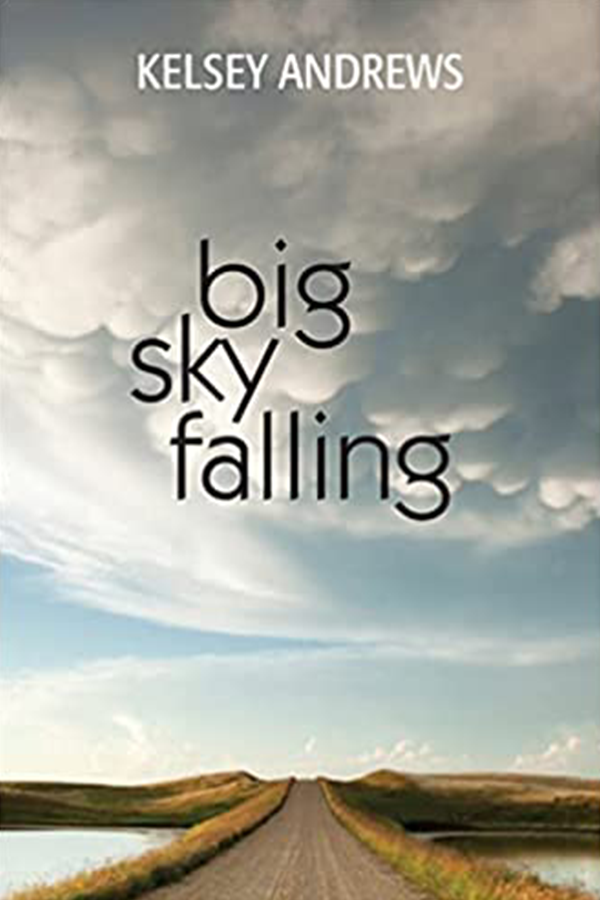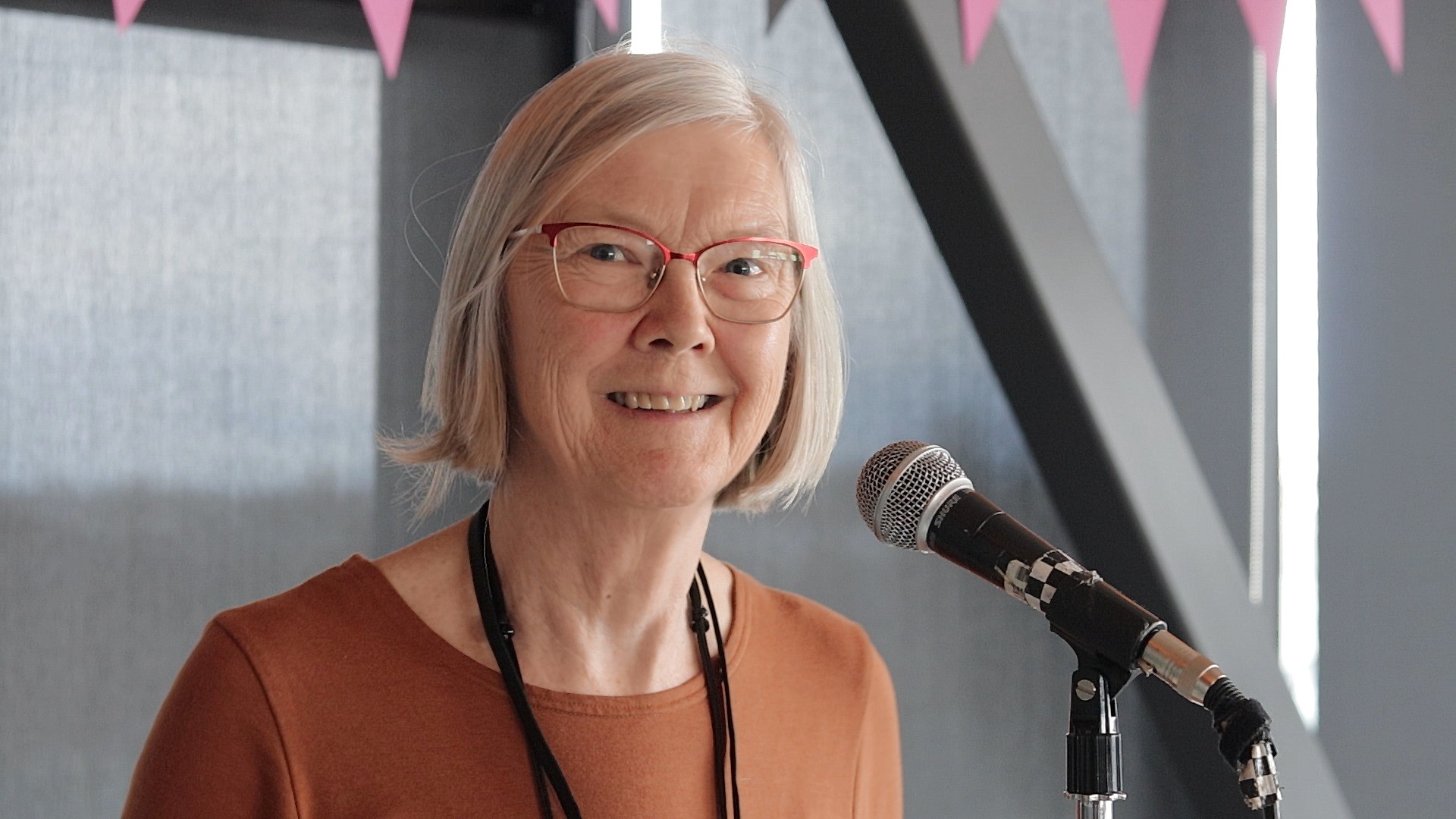Kelsey Andrews’ debut collection is grounded in the body, in the mind, and in nature, whether the landscape is prairie, West Coast, or the B.C. interior. The poems also move through a grittier cityscape that mirrors interior struggles. Crows lead a speaker “along twisting paths” (“Not Much”). Navigating this labyrinth involves elements of both joy and pain.

The prairie poems frequently situate a young speaker outdoors. Andrews gives us the particular quality of prairie light, which “must be washed to be at its best” (“Light Touches”). Light in a lake will “arrow through / green and golden at once,” and water laps “like smooth / tongues” (“Girl Tea”). Lying in a hayfield, her head is “down low enough that the grass / holds up the sky” (“What We Take”).
But not all is idyllic: the titular “big sky” is a bowl with “a bite to it” (“The Farthest Thing”); a schoolmate’s misinformation about tormenting flies leaves the speaker “empty with pity” (“Flies”). She knows that “things that hurt this much / are also beautiful / and vice versa” (“The Farthest Thing”).
Much of what hurts relates to clinical depression, which Andrews evokes in striking imagery: “Being a human didn’t work out” (“Terrain”), and “I cannot hold this much broken / in my mouth” (“Supplicant’). Vancouver, where the speaker experiences depression, is a “concrete and stone bowl / filled with thin soup / of fog and strangers’ sweat” (“Drought Year”). Its moon has a “battered face / so still that men have mapped and named / her bruises,” and the speaker is obscured “beneath the glistening fist / of all these lights” (“City Moon”). Her “hot meaty heart / is caged in a cave of hollow bone” (“Medusa”). Illness is personified as a fretful child whose actions cause “little Hope / from next door” to hide, and the speaker to feel food as “gravel / in [her] gut” (“The Doctors Call It Depression, but That Is Not His Name”).
The book opens with an address to a body that has “healed from so much” (“As a Body”). Later, embodied images speak to depression, so that “Skin becomes sediment” and the speaker turns “like mountains folding” (“Terrain”). Recurring motifs resonate differently, with crows first making “a knocking sound / that delights my bones” (“Wednesday”), but later “Knocking / on my sternum like a door. / That noise a fist in me” (“That Strange Sound the Crows Make”).
A turning point comes where “unlooking / we uncover joy somehow / like light hidden green / under a cabbage we pick” (“Green”). Experiencing hope, the speaker begins to emerge from a grey world where she has had “newspapers collecting like a family of storks in the box” (“She Hadn’t Felt This Way for a Long Time”). She re-engages with nature, and physicality is now often felt in the context of romantic relationships. But the path continues to twist and turn, with the speaker recalling “beauty in dismemberment” (“Bud”). The memory of love “softens / and hardens you, and gives you / hunger like a gift” (“On Considering a Past Lover”).
Andrews writes with a graceful candour about depression and the circuitous route to wellness. The book concludes with a paean to the moon and how its “monthly making of yourself / monthly making yourself less” resonates (“Moon Howl”). She has said that early experiences reading her poems in public silenced her for many years. I am grateful that she has recovered her voice in this nuanced and evocative poetry collection.
Bios

Frances Boyle
Frances Boyle’s most recent book is Openwork and Limestone (Frontenac House, 2022). In addition to two earlier poetry books, she is the author of Tower, a novella (Fish Gotta Swim Editions 2018) and Seeking Shade, an award-winning short story collection (The Porcupine’s Quill 2020). She is a regular reviewer with both Arc and Canthius. Raised on the prairies, Frances has long lived in Ottawa on unceded and unsurrended Algonquin Anishinaabeg territory. Visit www.francesboyle.com and follow @francesboyle19 on Twitter and Instagram. [updated in November 2023] Photo credit for headshot: Miranda Krogstad

